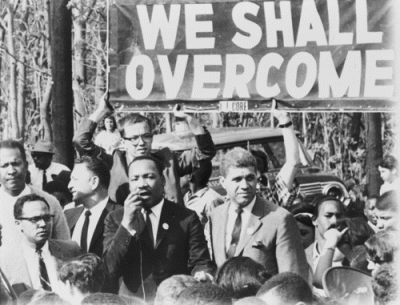What Sun Tzu and Clausewitz were to war, Gene Sharpwas to nonviolent struggle—strategist, philosopher, guru. An American academic who worked from his modest Boston home, Sharp studied and cataloged examples of nonviolent resistance, looking at why they succeeded or failed.
Sharp’s major contribution was to demonstrate that nonviolent struggle is more effective than armed struggle in most circumstances. Nonviolent action is not an appeal to a dictator’s conscience. It is a war, but fought without arms.
Sharp’s first work, “The Politics of Nonviolent Action,” a 3-vol series published in 1973, lists 198 tactics that movements use. Marches and parades, mock awards ceremonies, staying home from work, skywriting, suspending sports matches, guerrilla theater, staging work slowdowns—even withholding sex.

Daily Inspiration — Intellectual Underpinnings of NonviolenceQuicklink Submitted By Josh Mitteldorf No comments, In Series: Daily Inspiration
|
|
| Rate It | View Ratings |
Josh Mitteldorf, de-platformed senior editor at OpEdNews, blogs on aging at http://JoshMitteldorf.ScienceBlog.com. Read how to stay young at http://AgingAdvice.org.
Educated to be an astrophysicist, he has branched out from there (more...)
,
The views expressed herein are the sole responsibility of the author
and do not necessarily reflect those of this website or its editors.

OpEdNews depends upon can't survive without your help.
If you value this article and the work of OpEdNews, please either Donate or Purchase a premium membership.
STAY IN THE KNOW
If you've enjoyed this, sign up for our daily or weekly newsletter to get lots of great progressive content.
If you've enjoyed this, sign up for our daily or weekly newsletter to get lots of great progressive content.
Series: "Daily Inspiration"
| The Worm Cure (Quicklink) ((View How Many People Read This)) | 05/31/2019 | |
| Daily Inspiration — Worship at the Office (Quicklink) ((View How Many People Read This)) | 02/26/2019 | |
| Daily Inspiration—A Sleeper in Seattle (Quicklink) ((View How Many People Read This)) | 02/18/2019 | |
| View All 442 Articles in "Daily Inspiration" | ||
To View Comments or Join the Conversation:




